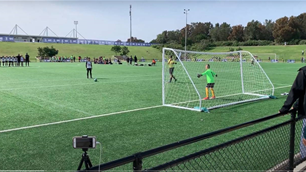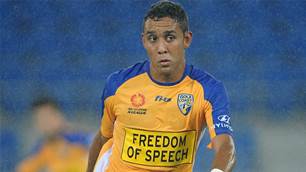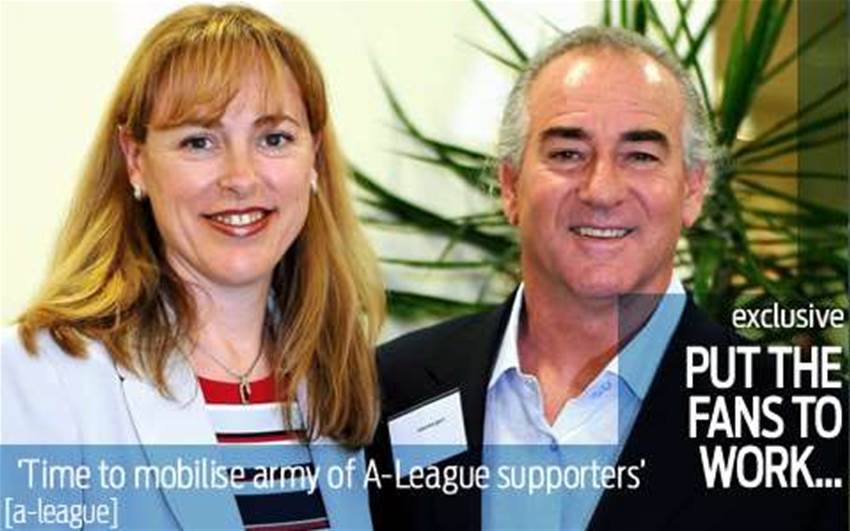FORMER Johnny Warren Football Foundation CEO Lisa Middlebrook has urged struggling A-League clubs to stop splashing out on lucrative salaries and start putting a volunteer fan base to work.
Middlebrook who dedicated seven years of unpaid work to DC United said the local game has a lot to learn from the MLS when it came to harnessing the power and reach of supporters.
The public policy strategist divides her time between Australia and the States and was critical of the number of people trying to gouge a buck out of the financially strapped A-League.
Even some well-heeled Socceroos, she said, were reluctant to give back to the local game – an attitude she described as “disappointing”.
“I think there’s a lot of people (in Australia) trying to make money out of the game where there just isn’t enough to go around,” said Middlebrook who left the foundation in November.
“There’s not enough people, there’s not enough fans, there’s not enough bums on seats and yet everybody is trying to get a salary, whether it’s an extraordinary salary or something you can live on – which in many parts of Australia is quite expensive.
“When there’s not enough to go around that creates a whole lot of angst, politics and fiefdoms. I think that we need to start a big campaign where a lot of people step up and volunteer.”
Middlebrook said many high-profile players were happy to give something back to the game but not all, referring to one “big name” who was asked to do a couple of radio interviews for the foundation.
“I said they will call you, you can stay at home,” she explained. “He didn’t have to go anywhere. He could have stayed on his sofa scratching himself – the answer was no. He didn’t want to do it.
“Now maybe it was just us. Maybe he didn’t want to lend his time to the foundation. Didn’t like what we were on about and that’s fine. But if not us, then please, give that time to somebody else.
“When big Socceroos who, let’s face it, have made enough money that they don’t have to work again for the rest of their lives come back to Australia to make more money and then aren’t available to help promote the game I get disappointed with that.”
Middlebrook’s passion for football has taken her to five World Cups and seen her head-up operations for headline games like Barcelona v Manchester United, organise player appearances and coordinate fan trips for hundreds of supporters to places such as Mexico City.
The daughter of an Australian mother and American father, she knows something about the challenges facing football. “Not only do I come from one country that doesn’t embrace the game but I come from two,” she quipped.
In the US, fan club reps gather for an annual summit to discuss scheduling, promotions and community engagement with MLS Commissioner Don Garber. It sends a strong message, Middlebrook said: “It shows that the league really values the fans and wants to hear from them.
“A lot of the (MLS) teams simply didn’t have the money for staff to cover the kind of promotions that they wanted.
“So they would tap into the fans who could articulate, wear a suit, who could help with these kinds of things. The DC United fan club raised almost $100,000 over the course of a few years.”
The strategist is convinced a beefed up volunteer culture could energise the local game and unleash an army of fans beyond the 90-minute game day experience.
“When you have a fan who says I help with this and I help with that – these fans become ambassadors for the club,” she said.
“They’ll go out into the community and say look I’m nobody, I’m just a fan but this club really wants me and uses my help and thinks that I’m valuable to them.
“They become proponents of a bond that’s much greater than screaming in the stands for 90 minutes.”
The A-League has stiff competition in the marketplace. Middlebrook said a foundation member’s seven-year-old daughter was given the opportunity to attend any Sydney sporting event and chose the Swans because the club had read books at her school. A former Socceroo from another State had the same experience with his 10-year-old daughter who opted for basketball after a school visit.
“The AFL has something like 13 full and part-time staff going around to schools doing these school meet and greets,” she said.
“Now is the time to get an activated, volunteer program – people on the books who will go and do this for free.
“(Fans) who can represent the club and say, Look I’m happy to stand here for nothing, because there’s not enough money and I want to help get the kids engaged with the team.
“Clubs need to be tapping into the fan base by whatever means possible and using that energy, enthusiasm and expertise to fill the gaps.”
That may require an attitude shift by clubs and fans. Last year, she said, Sydney FC was unable to send a player to an end of year school presentation event because no one was available – not even a player from the injured list.
“They just said we really can’t do it,” Middlebrook said. “That answer has got to change. They’ve got to find somebody – anybody.”
Meanwhile supporters who are prepared to donate their time to a Marconi-type club may not see the same need when it comes to an A-League club.
But encouraging a strong volunteer ethic will ensure fans stick around long after the big names have signed off.
Middlebrook added: “If you have that sort of emotion for a club and you’ve worked hard for them and the club really values your hard work then it goes beyond the marquee player.
“(Alessandro) Del Piero is getting people in the stands at the moment - if he leaves, do the people come back? Do they stay?
“It will be a bit of challenge for MLS now that (David) Beckham is going – but I think you’ll also find that there are a number of clubs for whom Beckham was not the draw and it really is all about local fan bases and including them.”
Related Articles

Fresh talent flock to ambitious A-League outfit's pro pathway

Why A-League 20/21 is crucial for Olyroos’ medal hopes













